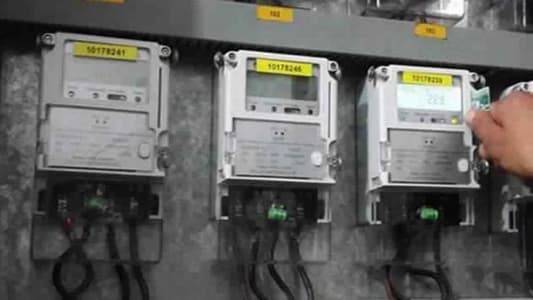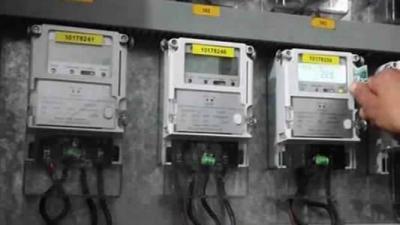Service provider companies within Electricité du Liban, namely Bus, KVA, and NEU, have begun implementing the smart meters project (the pilot project is 10% of the total meters). To this end, they are announcing the replacement schedule to inform the residents of the buildings. This project includes the removal of old meter boxes and panels and the installation of new plastic boxes, replacing current electromechanical meters with smart meters and old circuit breakers with new Digentur breakers. This raises several questions regarding the cost of installing these smart meters and the entity that will provide the funding, especially since discussions are ongoing about the funding source for purchasing fuel necessary to increase electricity supply hours to 8 and 10 hours.
Fadi Abu Joudeh, the General Manager of Bus, confirmed to "Nidaa al-Watan" that the cost is "a contractual subject with Electricité du Liban that cannot be disclosed publicly to avoid breaching contract terms.” He explained that funding comes from Electricité du Liban's revenues, meaning from billing, and noted that citizens would not incur any additional costs. Regarding the installation fee for the new meter, he indicated that it is determined by Electricité du Liban based on the required capacity. To clarify, regular meters are currently installed for new requests and will later be replaced with a smart meter after receiving approval from “Electricité du Liban” without any cost to the citizen. Additionally, the installation of smart meters is not done "piece by piece". It is an electrical and electronic system planned to connect the network from medium voltage exits through local transformer stations to the household meter, ensuring the system functions properly and connects the flow of energy. This is what is currently being accounted for in the current installation of the 44,000 meters approved by "Electricité du Liban".
Amid difficult circumstances facing the country and Electricité du Liban, and the near-complete absence of funding and payment of dues, according to Abu Joudeh, "about 33,000 out of the 44,000 meters approved by Electricité du Liban have been installed so far." It is worth noting that the total number upon completion will be around 550,000 meters within Bus's operational area (which includes the Beirut River and northern Beirut - Burj Hammoud, passing through Metn, Kesrouan, Jbeil, Batroun, Zgharta, Dinniyeh, Minieh, and Akkar), with the largest quantity located in the northern Metn.
Notably, these meters can be read remotely from the offices of "Botek" for maintenance and operation via a special system, awaiting Electricité du Liban, which "is responsible for purchasing, equipping, and operating the central control center." Abu Joudeh outlined the advantages of smart meters as follows: precision in measuring technical and non-technical waste at the level of medium voltage exits and sub-distribution stations, identification and eventual elimination of non-technical losses, reduction of technical waste, and increased efficiency of distributed energy. The system allows for the pinpointing of waste at a narrow scale (substation level) without the need for traditional on-site investigation campaigns (field surveys), thereby reducing the time required to identify the waste and minimizing human resource exhaustion.
Furthermore, he mentioned that "this system will rebalance the load distribution across substations, reducing circuit breaker separations (due to increased load) and local supply interruptions, while improving the electrical current. Importantly, it allows for a quick response to customer complaints, with the ability to pinpoint issues without needing to visit the site in some cases and being able to detect certain types of problems without customer reports or calls, enabling immediate action by maintenance teams. Customers will also have self-monitoring capabilities for energy consumption and current quality, allowing for accurate automatic meter readings, which contributes to timely bill issuance and reduces field reading activities (except in special cases), in addition to reading consumption for customers using the NET metering feature."
Abu Joudeh further explained additional benefits such as the ability to remotely adjust the subscribed electrical capacity based on customer requests and to remotely disconnect or reconnect power at the request of the customer or Electricité du Liban, improving billing efficiency for Electricité du Liban, and the potential for multiple pricing rules for energy consumption throughout the day and per season, as well as immediate electronic alerts in case of attempts to tamper with the meters.
Ultimately, the success of this project will rely on the billing capabilities of the service provider companies for Electricité du Liban, which will finance the purchase of fuels to increase electrical supply since subscribers will not pay a single pound out of their pocket until the work is completed to connect their internal electricity cables to the new circuit breakers by a professional electrician. Will the billing, which will not be comprehensive across all Lebanese territories under the new pricing, cover all these dues?




